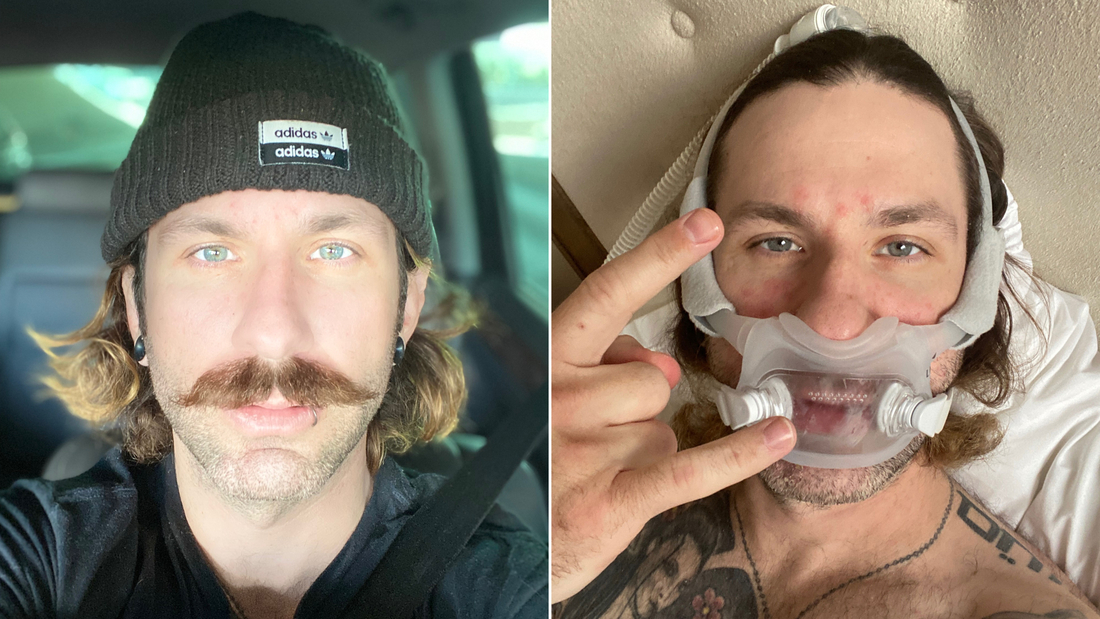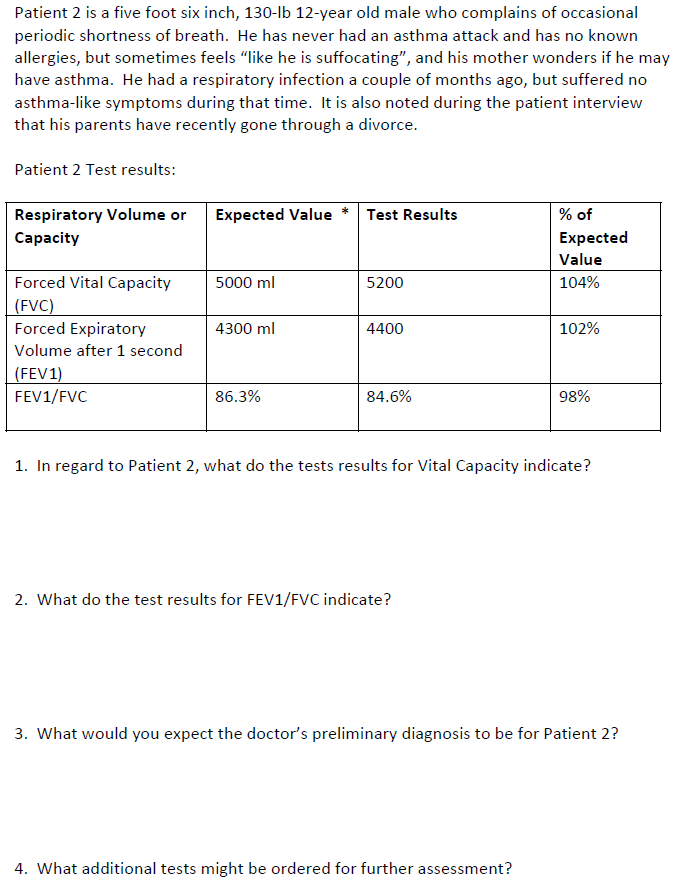Occasional Shortness Of Breath
- Slight Shortness Of Breath Causes
- Occasional Shortness Of Breath Covid
- Occasional Shortness Of Breath And Chest Pain
- When To Worry About Shortness Of Breath
- Belching And Occasional Shortness Of Breath
- Occasional Shortness Of Breath And Fatigue
Shortness of breath generally occurs due to infections, allergies, asthma or other nervous and respiratory disorders. Difficulty in breathing and fatigue are closely related to each other as the latter is a prominent indicator of a person suffering from shortness of breath. There are several kinds, but one that may cause shortness of breath is SVT, or atrial tachycardia. In SVT, the heart rate speeds up because the heart’s electrical signals don’t fire properly. Shortness of breath, also referred to as dyspnea, can be caused by a heart condition, especially if it comes on suddenly. Chronic shortness of breath may be due to other causes, but it’s best to see your doctor to determine the reason so you can take action for your health. Shortness of Breath Treatment. If shortness of breath is an isolated event, Dr. Gupta says you can try these methods to feel better at home: If associated with a cough or congestion, try using steam or over-the-counter decongestants to relieve feeling short of breath. If wheezing, use an inhaler with your provider’s approval. Most cases of shortness of breath are due to heart or lung conditions. Your heart and lungs are involved in transporting oxygen to your tissues and removing carbon dioxide, and problems with either of these processes affect your breathing. Shortness of breath that comes on suddenly (called acute) has a limited number of causes, including.
Shortness of Breath and Cardiovascular Health
If you’ve ever experienced shortness of breath, you may have wondered if it could be related to your cardiovascular health. Some heart conditions can cause shortness of breath so it’s important to pay attention to this symptom.
Shortness of breath, also referred to as dyspnea, can be caused by a heart condition, especially if it comes on suddenly. Chronic shortness of breath may be due to other causes, but it’s best to see your doctor to determine the reason so you can take action for your health.
Since there are many reasons you can experience shortness of breath, we’ll go over the various causes and how you may be able to tell if it’s related to your cardiovascular health.
What Can Cause Shortness of Breath?
Most often, shortness of breath is related to conditions of the heart or lungs. However, there are times where you may experience occasional shortness of breath that are not a reason for concern. To figure out what could be causing your breathing difficulty, it helps to consider when and why it occurs.
What Can Cause Sudden Breathing Difficulties?
If your shortness of breath comes on suddenly, some of the possible causes are:
- Heart attack
- Heart failure
- Heart arrhythmia
- Asthma
- Pneumonia
- Pulmonary embolism
- Intense exercise
- Nasal congestion
A heart attack
can be preceded by a sudden shortness of breath along with overwhelming fatigue since your heart isn’t able to pump blood effectively. This indicator tends to be more common in women.
Heart failure
may be indicated by shortness of breath which is frequently brought on by physical activity. However, you can still experience breathlessness with no apparent reason, such as while resting, and may find it more difficult to breathe when lying flat.
Heart arrhythmia
is a heart condition where the heartbeat is abnormal and may be paired with shortness of breath.
Asthma
is commonly associated with shortness of breath as well as coughing and tightness in the chest.
Pneumonia
can cause a rapid heart rate along with breathing difficulties.
A pulmonary embolism
can cause sudden shortness of breath with chest pain and a cough.
Intense exercise
can leave you gasping for breath but as long as you are able to catch your breath shortly afterward, there is no reason to worry.
Nasal congestion
can cause shortness of breath if one nostril is clogged and you’re forced to breathe through just the other nostril. Again, this is not cause for concern since it is a temporary problem.
What Can Cause Chronic Breathing Issues?
If you’ve been experiencing chronic shortness of breath for over two weeks, it could be caused by:
- Asthma
- Being overweight or obese
- Smoking
- Being out of shape
Asthma
can cause sudden shortness of breath, as mentioned above, but since this condition is primarily associated with breathing difficulties it is often a chronic problem. Symptoms can arise when triggered by exertion, stress, allergies, or poor air quality.
Being overweight or obese
can cause breathlessness due to lack of oxygen in the blood, additional layers of fat on the neck, chest, and abdomen that interfere with breathing ability, or from hormones that play a role in breathing patterns. You may also notice sluggishness along with nighttime snoring or gasping for breath.
Smoking
can cause COPD, or chronic obstructive pulmonary disease, which can present as breathing difficulties, coughing, and wheezing. COPD can also increase the risk of heart disease.
Being out of shape

can cause shortness of breath upon exertion because your heart is deconditioned and must work harder.
What Can You Do to Help Prevent Shortness of Breath?
If you’re experiencing shortness of breath, there are some things you can do to help prevent or decrease reoccurrences.

To reduce the occurrence of shortness of breath, there are some lifestyle changes you can make:
- Improve your cardiovascular fitness.
- Pace yourself when doing physical labor.
- Decrease stress levels.
- Quit smoking.
Improving your cardiovascular fitness
can decrease shortness of breath due to many of the above listed causes. Since overexertion can be a trigger for breathlessness, check with your doctor to see if it is safe for you to exercise and at what intensity. As you improve your fitness level, you may be able to gradually increase the intensity and handle exertion better than before, which should decrease your breathless episodes.
Slight Shortness Of Breath Causes
Pace yourself when doing physical labor
because overexertion is one of the top triggers for shortness of breath when you have a heart condition. Take care not to push yourself too hard when exercising or doing any manual labor like yard work. Be sure to take frequent breaks and stay well hydrated.
Decreasing stress levels
can help prevent the anxiety and increased heart rate that can trigger shortness of breath. Do what you can to remove unnecessary stressors from your life and add in some relaxing practices to help you better manage unavoidable stress.Try practicing slow, steady breathing techniques to slow down a rapid heartbeat. Spend time with people and pets who make you feel good. Try out tai chi or yoga. Spend time each day doing something you find relaxing.
Quit smoking
since it can put a lot of strain on your heart, lead to COPD, and shortness of breath, as well as many other heath conditions. If you’re struggling with quitting, talk to your doctor for support and advice on how to increase your chances for success with ditching the habit.
What Should You Do if You Think Your Shortness of Breath is Heart-Related?
If you experience shortness of breath and you believe it isn’t due to one of the aforementioned short-term circumstances, like intense exercise or a stuffy nose, be sure to schedule an appointment with your doctor to get your heart checked out. Many of the causes of dyspnea are heart-related, whether directly or indirectly, so it’s best to play it safe and have your doctor examine you.
Seek immediate medical attention if your shortness of breath is accompanied by chest pain, nausea, faintness, mental confusion, blue lips or nails.
Summary

Now you know how shortness of breath can be related to your cardiovascular health. You also know the signals your body may be sending out to tell you that it needs some additional support for your cardiovascular health. You’ve seen how easy it can be to change some of your lifestyle habits to support a healthy heart and decrease the reoccurrence of dyspnea. Adding healthy amounts of physical activity and relaxation to your daily regimen can help alleviate or prevent some of the symptoms of poor cardiovascular health.
While a healthy diet and lifestyle are extremely helpful for a strong cardiovascular system, it’s important to seek out professional care if the problem persists. If you’re experiencing symptoms of poor cardiovascular health that don’t respond to diet and lifestyle changes, contact us today to book an appointment.
Sudden shortness of breath, or breathing difficulty (dyspnoea), is the most common reason for visiting a hospital accident and emergency department.
It's also one of the most common reasons people call 999 for an ambulance.
It's normal to get out of breath when you've overexerted yourself, but when breathlessness comes on suddenly and unexpectedly, it's usually a warning sign of a medical condition.
The information below outlines the most common reasons for:
- sudden shortness of breath
- long-term shortness of breath
This guide shouldn't be used to self-diagnose your condition, but should give you an idea of what's causing your breathlessness.
When to call a doctor
You should call your GP immediately if you have sudden unexpected shortness of breath, as there may be a problem with your airways or heart.
Your GP will assess you over the phone, and may either visit you at home or admit you to hospital. If your shortness of breath is mild or the result of anxiety, you may be asked to come to the surgery rather than a home visit.
If you've struggled with your breathing for a while, don't ignore it. See your GP as it's likely you have a long-term condition, such as obesity, asthma or chronic obstructive pulmonary disease (COPD), which needs to be managed properly.
Your doctor may ask you some questions, such as:
- Did the breathlessness come on suddenly or gradually?
- Did anything trigger it, such as exercise?
- How bad is it? Does it only happen when you've been active, or when you're not doing anything?
- Is there any pain when you breathe?
- Do you have a cough?
- Do certain positions make it worse – for example, are you unable to lie down?
Feeling like you can't get enough air can be terrifying, but doctors are well trained in managing this. You may be given extra oxygen to breathe if this is needed.
Causes of sudden shortness of breath
Sudden and unexpected breathlessness is most likely to be caused by one of the following health conditions. Click on the references at the end for more information about these conditions.
A problem with your lungs or airways
Sudden breathlessness could be an asthma attack. This means your airways have narrowed and you'll produce more phlegm (sticky mucus), which causes you to wheeze and cough. You'll feel breathless because it's difficult to move air in and out of your airways.
Your GP may advise you to use a spacer device with your asthma inhaler. This delivers more medicine to your lungs, helping to relieve your breathlessness.
Pneumonia (lung inflammation) may also cause shortness of breath and a cough. It's usually caused by an infection, so you'll need to take antibiotics.
If you have COPD, it's likely your breathlessness is a sign this condition has suddenly got worse.
Occasional Shortness Of Breath Covid
A heart problem
It's possible to have a 'silent' heart attack without experiencing all the obvious symptoms, such as chest pain and overwhelming anxiety.
Occasional Shortness Of Breath And Chest Pain
In this case, shortness of breath may be the only warning sign you're having a heart attack. If you or your GP think this is the case, they'll give you aspirin and admit you to hospital straight away.
Heart failure can also cause breathing difficulties. This life-threatening condition means your heart is having trouble pumping enough blood around your body, usually because the heart muscle has become too weak or stiff to work properly. It leads to a build-up of fluid inside the lungs, which makes breathing more difficult.
A combination of lifestyle changes and medicines or surgery will help the heart pump better and relieve your breathlessness.
Breathlessness could also relate to a problem with your heart rate or rhythm, such as atrial fibrillation (an irregular and fast heart rate) or supraventricular tachycardia (regular and fast heart rate).
Panic attack or anxiety
A panic attack or anxiety can cause you to take rapid or deep breaths, known as hyperventilating. Concentrating on slow breathing or breathing through a paper bag can bring your breathing back to normal but should only be done when you are certain anxiety is the cause of your breathlessness.
More unusual causes
These include:
- a severe allergic reaction (anaphylaxis)
- pneumothorax – partial collapse of your lung caused by a small tear in the lung surface, which allows air to become trapped in the space around your lungs
- pulmonary embolism – a blockage in one of the blood vessels in the lung
- idiopathic pulmonary fibrosis – a rare and poorly understood lung condition that causes scarring of the lungs
- pleural effusion – a collection of fluid next to the lung
- diabetic ketoacidosis – a complication of diabetes where acids build up in your blood and urine
When To Worry About Shortness Of Breath
Causes of long-term breathlessness
Belching And Occasional Shortness Of Breath

Long-term breathlessness is usually caused by:
Occasional Shortness Of Breath And Fatigue
- obesity or being unfit
- poorly controlled asthma
- chronic obstructive pulmonary disease (COPD) – permanent damage to the lungs usually caused by years of smoking
- anaemia – a low level of oxygen in the blood caused by a lack of red blood cells or haemoglobin (the part of red blood cells that carries oxygen)
- heart failure – when your heart is having trouble pumping enough blood around your body, usually because the heart muscle has become too weak or stiff to work properly
- a problem with your heart rate or rhythm, such as atrial fibrillation (an irregular and fast heart rate) or supraventricular tachycardia (regular and fast heart rate)
More unusual causes of long-term breathlessness are:
- bronchiectasis – a lung condition where the airways are abnormally widened and you have a persistent phlegmy cough
- pulmonary embolism – a recurrent blockage in a blood vessel in the lung
- partial collapse of your lung caused by lung cancer
- pleural effusion – a collection of fluid next to the lung
- narrowing of the main heart valve, restricting blood flow to the rest of the body
- frequent panic attacks, which can cause you to hyperventilate (take rapid or deep breaths)